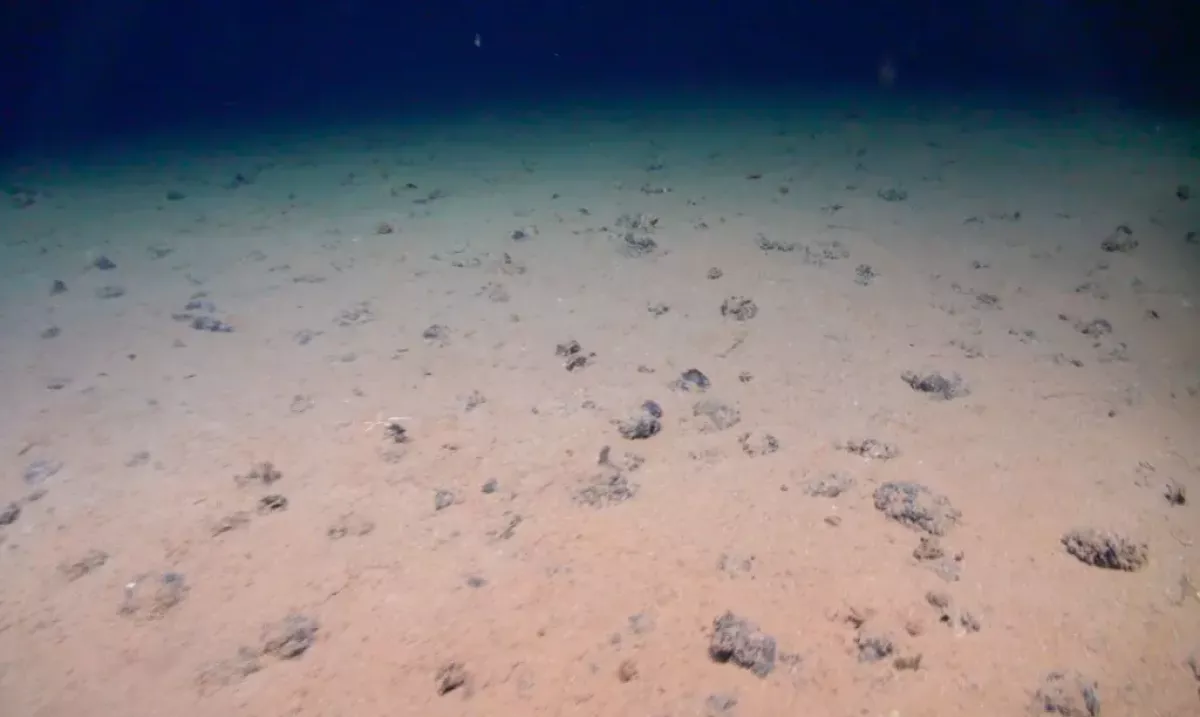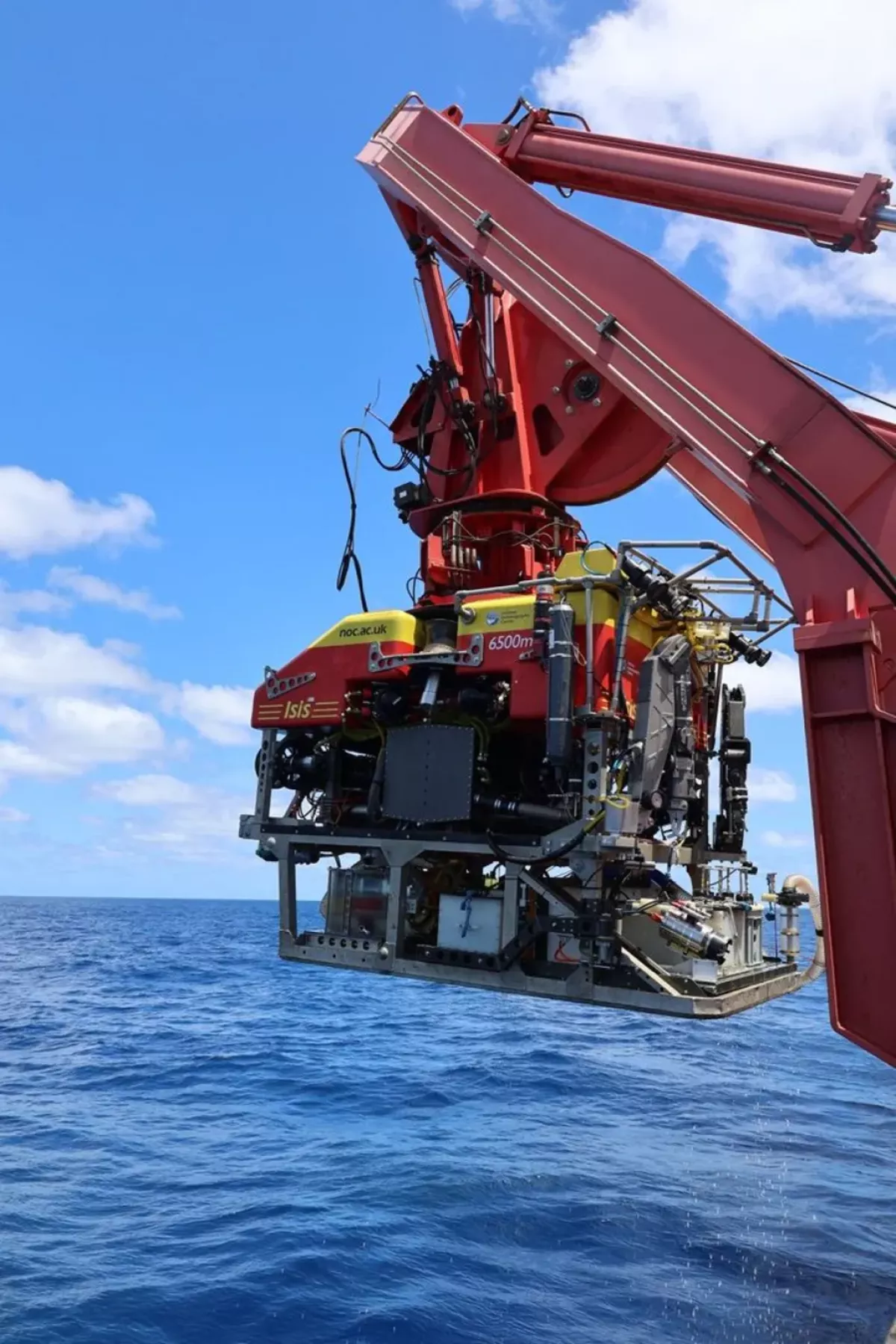How discovery of oxygen-producing underwater lumps could advance search for life beyond Earth
Scientists who recently discovered that metal nodules on the dark seafloor produce oxygen have announced plans to study Earth's deepest oceans to understand this mysterious phenomenon further. Although their research carries the potential to transform our understanding of life on other planets, the discovery has caused a rift within the scientific community.
This finding challenges the long-held belief that oxygen is only created by plants in sunlight through photosynthesis. If oxygen can form in total darkness through interactions with metal nodules, an article by the BBC points out, it raises the possibility that similar processes could occur on other planets, creating oxygen-rich environments where life might exist.
Lead researcher Professor Andrew Sweetman explained, "We’re already in discussions with NASA experts, who think this discovery could reshape how we view the potential for life on planets without direct sunlight. Our goal is to determine exactly what’s happening."
The initial findings, published last year in the Nature Geoscience journal, sparked a heated global debate. Marine scientists and deep-sea mining companies criticized the results, questioning their validity. Environmental organizations argued that the discovery highlights the need to halt mining operations, given its potential impact on deep-sea ecosystems. If oxygen is being produced at extreme depths, it raises questions about what life might be thriving there and what damage mining activities could inflict.

To address these questions, researchers plan to investigate sites more than 10 kilometers deep, using advanced remotely-operated submersibles. "Our instruments can reach the deepest parts of the ocean," said Prof. Sweetman. "We’re confident we’ll find this happening in other areas, and we’ll investigate the mechanisms behind it."
Collaborating with NASA, the team will also explore whether the same oxygen-producing process could support microscopic life beneath extraterrestrial oceans, such as those on moons like Europa or Enceladus. "If there’s oxygen," Prof. Sweetman noted, "there could be microbial life taking advantage of it."
The Debate Over Deep-Sea Mining
According to the article, the research is taking place amidst rising interest in seabed mining, as companies look to harvest metal nodules for critical materials needed in batteries for electric vehicles and renewable energy technologies. These nodules form naturally over millions of years as dissolved metals accumulate around shell fragments or other debris on the ocean floor. The area between Hawaii and Mexico, where Prof. Sweetman’s team first made their discovery, is part of a vast stretch of seafloor rich in such deposits.
During the team’s earlier expeditions, sensors placed at a depth of about 5 kilometers detected rising oxygen levels around the nodules. Initially, the researchers dismissed the readings, assuming oxygen could not form without sunlight. However, subsequent lab experiments revealed that the nodules generate electric currents capable of splitting water molecules into hydrogen and oxygen.

This revelation led to backlash from some scientists and mining companies, who questioned the experimental methods and results. Michael Clarke, a representative from the Canadian deep-sea mining firm The Metals Company, criticized the findings, suggesting the observed bubbles were merely a result of equipment artifacts during sample collection.
Prof. Sweetman and his team have since ruled out such possibilities and plan to conduct further experiments to provide conclusive evidence. "These new studies will definitively demonstrate whether or not the oxygen production is real," he stated.
Environmental Concerns
The debate over deep-sea mining has sparked significant environmental concerns. The BBC has recalled that more than 900 marine scientists from 44 countries have signed a petition urging a pause on mining activity until the ecological risks are fully understood. Deep-sea ecosystems remain one of the least-explored and most fragile habitats on Earth, and any disruption could have far-reaching consequences.
At a recent press conference, Prof. Sweetman emphasized the importance of understanding these ecosystems before making any decisions about mining. "We need to carefully study the deep-sea environment to determine the potential impacts. As a global society, we should hold off on mining until we have a better grasp of what’s at stake."
The discovery of oxygen production in the deep ocean not only challenges fundamental scientific assumptions but also underscores the need for caution as humanity explores and exploits these uncharted depths. As researchers probe further into this phenomenon, the artice believes their findings could reshape both the future of ocean conservation and the search for life beyond Earth.
By Nazrin Sadigova








